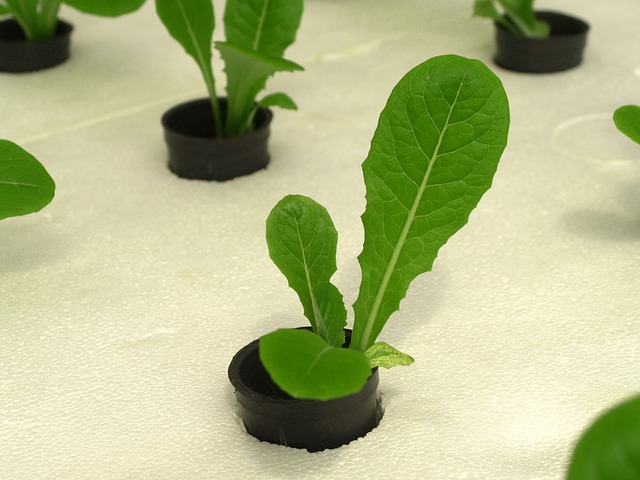Square Roots, an innovative indoor, urban farming incubator launched in Brooklyn, New York, last year by Kimbal Musk – younger brother of Tesla and SpaceX founder Elon Musk and his business partner Tobias Peggs – has closed on a Seed Round totaling $5.4 million. The round was led by New York-based Collaborative Fund that committed $2 million.
Upon the incubator’s official launch last year, Musk said in a statement, “Our goal [with Square Roots] is to enable a whole new generation of real food entrepreneurs, ready to build thriving, responsible businesses. The opportunities in front of them will be endless.”
To help advance the urban indoor and vertical farming movement, Square Roots selects 10 entrepreneurs and offers them a 13-month program during which they are trained in a curriculum touching on four pillars: farming, business, community, and leadership. The course includes classes, workshops, coaching and training sessions, and practical experience gained through growing food in each of 10 hydroponic, climate controlled farming units, according to the incubator’s website.
Each participant must make a $5,000 deposit at the beginning of the program. However, each participant also has the ability to apply to the U.S. Department of Agriculture (USDA) to help cover the cost, and is able to sell the produce they grow. Square Roots’ current class of 10 entrepreneurs are producing leafy greens including chard and kale which are being sold to local restaurants and through online delivery.
“Our goal is to empower young people to become real food entrepreneurs—so selling the food they grow is a big part of that,” Peggs told Food and Wine last year at time of launch. “We will encourage them to build direct relationships with customers and sell food locally—to families at farmers’ markets, to chefs at restaurants, and more.”
The funding raised through this seed round will help support Square Roots as it looks to expand to include a second campus next year, and foresees a future with a Square Roots campus in every city providing food to local restaurants, including his own. But the main goal of the incubator is to engage innovative, young entrepreneurs who can leverage technology to answer the challenges faced in agricultural production.
“You have these 180-acre family farms where you might only make $23,000 a year, and it’s so unattractive to the younger generation,” Musk told Venture Beat. “It’s about how do we get farmers to have a higher crop yield, to get more profitable? I’ve gotten to spend a lot of time with farmers, but I don’t have all the answers.”
An Indoor Field of Rivals
Virtually unheard of only a few years ago, the production of food utilizing highly controlled, closed systems has seen startups evolve on multiple continents and is beginning to gain investor attention.
Canada-based TruLeaf – a company that has leveraged farming technologies to create an indoor production system for leafy greens called the Smart Plant System – plans to produce basil, arugula, kale, spinach, and its own east coast salad mix for year-round supply to retail outlets.
Paris-based container farming startup Agricool announced in December 2016 that it had raised $4.3 million in a round led by recently launched French venture capital firm Daphni, along with Henri Seydoux, the founder of drone company Parrot, and Jean-Daniel Guyot, co-founder of Captain Train.
By the end of this year, the company plans to deploy 75 farming production containers throughout the city of Paris with a production goal of 91 tons of strawberries. Longer term, Agricool plans to expand into the production of fruit and nuts as it also expands geographically.
Boston-based Freight Farms is the developer of the Leafy Green Machine, a complete vertical, hydroponic farming system built inside a shipping container that is capable of growing a range of lettuces, herbs, and hearty greens, and has a production capacity equal to 1.8 acres of farmland.
This year however, the investment numbers in the sector began to get noticeably larger. In June of this year high tech indoor, ‘post organic’ vertical farming startup Bowery Farming announced it had raised $20 million in a Series A1 co-led by General Catalyst and GGV Capital, and including GV, First Round Capital, and other seed round investors. This round brings the company’s total earning to $27.5 million.
As advances in LED technology, robotics, and data management make intensive, indoor agriculture more viable, with software and hardware being able to work together to integrate levels of automation into indoor agricultural production systems, eliminating human labor and allowing for urban vertical farming to operate at scale, the industry is attracting more investor dollars.
This became evident this July, when San Francisco-based indoor vertical farming startup Plenty raised the largest agtech funding round in history – a $200 million Series B led by SoftBank Vision Fund – the $93 billion all-stage tech fund headed by Japanese billionaire Masayoshi Son. Other participants in the round include affiliates of Louis M. Bacon, the founder of Moore Capital Management, and existing investors Eric Schmidt’s Innovation Endeavors, Finistere, DCM, Data Collective, and Bezos Expeditions. This round brought total funding for the startup to $226 million.
-Lynda Kiernan
Lynda Kiernan is Editor with GAI Media and daily contributor to GAI News. If you would like to submit a contribution for consideration, please contact Ms. Kiernan at lkiernan@globalaginvesting.com

